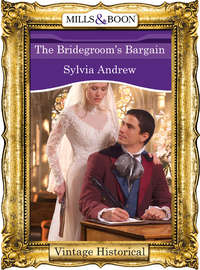
Полная версия
Regency High Society Vol 2: Sparhawk's Lady / The Earl's Intended Wife / Lord Calthorpe's Promise / The Society Catch
“Both,” she whispered miserably, her own body aching with unfulfillment. “You must understand—”
“Damn your understanding!” He could take her now, here, while the fire she’d roused in him still throbbed in his body. Despite her words, he knew she wanted him. It would be so easy to bury himself deep within her, to lose himself in the hot promise of her love.
But instead he shoved her away while he still could, so roughly that she stumbled backward. Desperate for some sort of release, he lashed out furiously at the paneling over her head with his fist. “You parade about half-naked and rub yourself against me like a cat in heat, and then you want me to understand when you change your mind?”
She winced at his crudeness, tugging her gown back over her bare breasts. “I didn’t mean it that way,” she said softly. “There are so many reasons.”
“Afraid you’ll lose your title, Countess?” he snarled, as angry with himself for what he’d nearly done to her as he was with her for denying them both. “Afraid that if your precious Frederick learned how eagerly you’d spread your legs for some poor American sailor like me, he’d toss you out on the street like the little whore you are?”
Hot tears of shame ran down her cheeks. “It’s not like that at all!” she cried. “It’s just I—I cannot love you the way you deserve.”
“You expect me to believe that?” Disgusted, he turned to leave.
“It’s the truth!” she sobbed. “Damn you, Jeremiah, did I question you last night?”
He froze, his hand on the latch, his face rigid.
“I need you, Jeremiah,” she said haltingly through her tears. “I need you and care for you, and I believe you care for me, too. But for me, for now, that’s all it can be. I can’t love you the way you want. I can’t love anyone like that. It’s not you, and it’s not Frederick. It’s my fault. All mine.”
She sank down to her knees on the deck, burying both her face and her tears in her hands. He would hate her now. How could he not? She deserved it for what she’d done to him. But, oh, how hard his hatred would be to bear!
She could still hear her mother’s voice, raspy with consumption, as she and her friends had taught the little country virgin the cold, mercenary lessons in pleasing men so men in turn would value her. They’d told her things she’d thought impossible between men and women, then showed her themselves with their willing lovers if she’d dare doubt in their hearing. They had ridiculed her innocence and mocked her romantic ideas of love and happiness as readily as they had criticized her beauty. Such spiteful, jealous women, those friends of Merry Miriam Harris, their high-pitched laughter and their bright satin gowns making them seem like exotic, expensive tropical birds in the gray seaside mist of Portsmouth.
Though she had tried so hard to do what her mother and her friends wanted, every cruel word had found its mark in her thirteen-year-old soul, and each night she had cried herself to sleep on the pile of quilts, rank with stale perfume and old sweat, that was her makeshift bed in the corner of her mother’s dressing room. Yet each night, too, she swore she wouldn’t be like them, and when Frederick had rescued her she thought she’d succeeded. She was cherished, she was loved, she was treated as well as a favorite daughter by a gentle man old enough to be her father who never in fifteen years had asked her to perform the specialities she’d been forced to learn.
But now Caro knew she was no better than her mother and her friends. Only her price had been different. And God in heaven, how dearly it had cost her!
For a long time Jeremiah stood watching her, crumpled there on the deck at his feet in the black sea of her tangled skirts. She was too lost in her sorrow to notice him, and as she wept softly to herself, he felt the blind anger that had so possessed him lessen and slip away. Overhead he heard Bertle shout an order, followed by the crewmen’s footsteps as they hurried to obey. Strange how he’d forgotten he was even at sea. Stranger still how his whole world seemed to have narrowed to this one tiny cabin and the weeping woman within it.
Her hair had fallen forward to veil her face, leaving the nape of her neck and her back in the open gown touchingly exposed. He had never thought of her as vulnerable, yet as she was now he could think of nothing else, and he had done it.
This was his fault, not hers. The scars he carried were there on his body, plain as day, but the ones that marked her ran deeper, and were no less painful for being hidden. He, of all people, should have listened when she’d begged for his understanding. He didn’t care now what had happened to make her believe she was so unworthy of the love she was born to give. What mattered most was that once again, one more time, he had failed another who had trusted him.
With a weary sigh he crouched down beside her, taking her hands in his to gently raise her to her feet. She kept her face lowered, unwilling to let him see how she wept. Wordlessly he turned her like a doll toward the bunks and began to lace her gown the way she’d first asked. The black cord crossed and recrossed her skin until, with a deft twist of his wrist, he pulled the two sides tightly together. He tied a neat little bow at the neckline and tucked the ends inside the gown.
And then, before she realized it, he was gone.
Chapter Ten

“That rocky island to the nor’ west is Sardinia,” said Jeremiah as he handed his spyglass to Caro, standing beside him on the Raleigh’s quarterdeck. “With any luck at all, we’ll make Naples by nightfall. For all that he’s an unpleasant rascal, Bertle’s done right well for us as a navigator.”
“We’ll be there tomorrow?” asked Caro wistfully as she took the glass, careful not to let her fingers brush his. “So soon?”
Jeremiah nodded, his hand tapping lightly on the rail as he gazed out across the bright blue Mediterranean. Even with a brisk breeze off the water, the morning was warm, and he’d left his coat in the cabin below and stood now in his waistcoat and rolled-up shirtsleeves, the wind billowing through the linen above his tanned forearms.
“Oh, aye, Bertle’s made a first-rate passage for us. Couldn’t be better.” He glanced down at her from the shadow of his hat brim, his eyes very green in the light reflecting from the water. “I thought you’d be pleased, considering. The sooner we make Naples, the sooner you could have your husband back.”
“I am pleased, thank you,” she answered evenly. “It is only that the journey’s been so easy that I wonder that we are there this soon.”
These past weeks with him she had become accomplished at such demonstrations of polite good breeding. By now she could let her eyes meet his without her face growing hot, and smile serenely when he offered his arm to her on the deck. It was all passing genteel, most correct.
She was sure he never guessed how she lay in the bunk above him each night and fought the fevered memory how his lips had felt on hers, the wildfire his touch had sent racing through her blood, and how shamelessly she had writhed in his arms as her body had begged for more. The vividness of the memory shocked her, returning whenever she was near him. She prayed he never noticed how many times she’d watched him covertly beneath her veiled hat and felt her pulse race as he climbed the rigging with an acrobat’s grace, working alongside the Raleigh’s crew to relieve the tedium of the voyage.
Most of all, she wanted him to believe she was as happy and as carefree as he seemed to be himself. Why shouldn’t Jeremiah be? Because he wasn’t married, he’d done nothing wrong, while she had betrayed the trust of one of the kindest men ever created. It could hardly be Frederick’s fault that though she loved him, she’d never been in love with him, a distinction she’d never known existed until now. And now it was too late, too late for all of them. But then she could hide her misery well. She’d had, after all, years of pretending she was something she wasn’t.
Jeremiah watched as she delicately arched her wrist and lifted the glass to her eye, her hands so dainty in the black kid gloves against the polished brass. Damn these overnice, ladylike airs of hers! He missed her impishness and her impulsive laughter and the way she’d tug on his sleeve like an impatient little girl. With her veil knotted back from her hat’s sugar-scoop brim, her face had the exact fashionable blandness expected of a countess. Only the freckles across her nose, like the gold pollen scattered across a lily, remained as he remembered.
Maybe it was the possibility of being reunited with Lord Byfield that had made her turn so proper on him, or maybe this really was the genuine Caroline Moncrief, and the woman he’d fallen in love with had been the artful imposter. Maybe his Caro, his passionate, impulsive, irrepressible Caro, wasn’t his at all, and didn’t exist beyond a handful of misadventures in Portsmouth calculated to bring him here to Naples with her, and those first two wretched nights aboard the Raleigh.
Whoever she was, she’d kept her distance since then. No more kisses, no more confessions, and somehow she’d rigged a way to get in and out of her clothes without his help. She didn’t need him for anything. And that, he told himself fiercely, was all for the best and fine with him.
Too bad he didn’t believe it, too.
“Is Sardinia a country in its own right?” she asked, focusing the glass.
“A kingdom, I think, if General Bonaparte hasn’t swallowed it up wholesale.” More of her polite small talk, he thought contemptuously. She wasn’t even looking in the direction of the island. “I’ve never put in there, so I can’t tell you much of the place.”
“Do you know the colors of their flag?”
“Red with yellow bars, I think. They’ve so few deep-water ships that I can’t have seen it more than a half-dozen times.”
Caro’s veil floated back up before her face, and impatiently she shoved it away without lowering the glass from her eye. “This flag might be red and yellow, but I don’t believe it is. No, now that it’s clear of the horizon, I can see it’s blue and white with the red.”
“What the devil?” Jeremiah grabbed the glass from her. Even at this distance, the tricolor of France was unmistakable, as were the three tiny dots of white topsail that crowned the masts of a frigate. And if Caro had spotted them from the deck, then the frigate’s lookouts high in those same sails would definitely have seen the Raleigh by now, and Jeremiah swore under his breath. To come so close to their destination and then be captured—it was too much like what had happened to the Chanticleer. No more war, he prayed, please God, no more fighting.
“It’s a French ship, isn’t it?” asked Caro, standing up on her toes to try to see better. “If England’s at war with them by now, as everyone said we would be, then they’ll try to catch us, won’t they?”
“Damned right they will.” Jeremiah squinted up at the Raleigh’s own lookout, staring dreamily at the purple-blue hills of Sardinia, and he bit back the automatic reproach. This wasn’t his ship, no matter how much danger the man’s carelessness had put them in.
Bertle wasn’t on deck, but Hart was, and in three steps Jeremiah was at the other man’s side, thrusting his own glass into the mate’s hands. “You wanted to see Frenchmen, Hart. Well, there the bastards are, large as life and on your tail.”
With his eye to the glass, Hart twitched like a setter who’d just eyed a pheasant. “We’ll have some sport now, won’t we, sir?” he said as he chuckled with anticipation. “What luck! What bloody good luck!”
Jeremiah stared at him in disbelief. “If this is your idea of good luck, than I’d hate to see bad. Where’s the captain?”
“In his cabin, with orders not to be disturbed. He always retires after breakfast, you know.”
“I didn’t know and I don’t care,” said Jeremiah curtly. “Send one of the men for him directly.”
“What, and waste this chance to seize the glory ourselves?” cried Hart, his plump chin quivering with anticipation. “The cannonades, Mr. Sparhawk, the cannonades! I’ll send Johnson below for the powder and balls, and then we’ll—”
“Shove the damn things over the side for all the good they’ll do you.” Jeremiah looked back at the French ship, her sails now clearly visible without the glass. At last the sloop’s lookout had spotted the frigate, and at his excited cry the rest of the sloop’s crew had swarmed up the rigging to look for themselves. “A frigate that size carries at least thirty-six guns, each one capable of firing twice as far as your little brass popguns. You wouldn’t even have a chance to aim before they’d blown you clear from the water.”
He would have tempered his words if he’d seen Caro beside him, but instead of being shocked or frightened, she only nodded, her eyes bright with excitement. “Then we’d be fools to pick a fight, Jeremiah. Wouldn’t it be better if we outran them?”
He glanced up at the sails, gauging the wind, and shook his head. “With their size and all the extra canvas they can set, they’d have us by sunset. Besides, if we run, we’ll just be giving them the excuse to fire on us anyway.”
“Look here, you’re only a passenger,” protested Hart. “You’re not even English. You’ve no right to be giving orders to anyone aboard this sloop.”
“And neither are you, you smug little jackass,” snapped Bertle as he stumped up the companionway, still buttoning his breeches. “What’s all this yammering about a Frenchman?”
“There, south-southwest,” said Jeremiah, his patience fast disappearing. “I’d guess from the way they’re chasing us that Bonaparte’s declared war, and we’re set to be that frigate’s first prize. Start thinking fast, Bertle. My wife and I have no wish to risk our lives because of your indecision.”
Hart elbowed his way forward. “I told them we’d fight it out, sir,” he said eagerly. “I told them—”
Bertle cuffed the mate sharply, enough to send the younger man staggering to one side. “You could have told them you knew as much as a keg of salt horse and it would’ve amounted to the same thing. Use the brains God gave you, boy, and learn to keep your mouth shut when you can’t.”
“What other papers do you carry?” demanded Jeremiah. “Dutch, maybe, or Swedish? Anything to fool them with when we’re boarded?”
Bertle glared at Jeremiah as he pulled out a red bandanna and noisily blew his nose. “That’s a low Yankee trick, bad as sailing under false colors, and I won’t countenance it.”
With his hands folded across his chest, Jeremiah looked down at the other captain. “You’d rather lose your ship and cargo?”
Bertle’s mouth worked as he tried to come up with another, more respectable possibility.
“If we’re going to try to fool them,” said Caro, and all three men turned to look at her, “shouldn’t we take down our flag? They might not have seen it yet, you know. The way the wind was blowing I couldn’t make out theirs for the longest time, and they’d be looking into the sun to see us, too.”
“Strike the king’s flag, ma’am?” exclaimed Hart with horror. “To a Frenchman, ma’am?”
Bertle grunted. “Do what the lady says, Hart, and don’t make a great show of it. Fray the line so it looks like we lost our colors in a blow. And mind, we’re not so much striking to the bloody French as protecting what’s ours.”
Caro grinned, and for the first time in weeks Jeremiah saw a flicker of her former impishness. “Then give it to me for safekeeping, Captain Bertle. No galant gentilehomme would dare search a lady’s belongings.”
Clearly uncomfortable with her French, Bertle only grumbled some sort of halfhearted reply.
“You’re registered out of Portsmouth, aren’t you?” asked Jeremiah, and Bertle nodded. “Then we’ll change your papers just enough to make ‘em pass for American. There’s a Portsmouth in Rhode Island, too, far up at the northern end of Aquidneck. We’ll make that the Raleigh’s home port, and pray the French won’t know the difference between an American and an English crew.”
“They’ll never guess if you pretend you’re the captain, Jeremiah!” cried Caro gleefully. “All the rest of us can keep quiet while you speak for us. No one, not even a Frenchman, would ever mistake you for English!”
Jeremiah smiled at her, delighted that she’d suggested it before he’d had to volunteer. Given the circumstances, he was willing to overlook how the compliment was more than a bit backhanded.
But it was no compliment at all to Bertle. “Are you daft, woman? You expect me to turn over my pretty little Raleigh to some Yankee by-blow so he can play at being a captain?”
Caro drew herself up straight, her blue eyes snapping with indignation. “He is no by-blow, Captain Bertle, and he is my husband, and I’ll thank you not to insult either of us any further,” she said tartly. “As for his capability to sail your silly little boat, why, he’s been a captain himself for years and years, and he sails ships so fine as to make this one look like no more than a peapod!”
Jeremiah lay his hand on her shoulder. “Steady, my dear, don’t go overboard.”
“It’s all true, Jeremiah, and I won’t have him say otherwise.” She rested her hand on top of his with what she hoped would seem like wifely loyalty. “In America, Captain Bertle, my husband owns a half-dozen trading vessels in his own name, and holds shares in goodness knows how many others. If he is a passenger in your precious Raleigh, and not the master of a sloop—a finer, better sloop—of his own, why then, it’s because he so chooses, not because he is incapable!”
Bertle’s mouth worked furiously. “I’ve only your word that says so, ma’am. Even if the whole braggart tale’s true, it still don’t change the fact of him being a Yankee.”
“No, it doesn’t,” agreed Jeremiah. “Nor does it change how that French frigate’s bearing down on us.”
“Damnation, Sparhawk!” sputtered Bertle. “What in blazes do you expect of me?”
“It’s your decision, Bertle,” continued Jeremiah relentlessly. He knew what destruction a warning shot from a frigate could bring, even if the others didn’t. “We Americans aren’t at war with anyone just now. My wife and I wouldn’t be touched. You and your crew could lose your ship and your freedom, but we’d be merely inconvenienced. Your choice, Captain.”
“May the devil himself take your choices, Sparhawk!” Bertle slammed his fist down on the railing. “I’m sorry I ever let the pair of you thieving rogues on board!”
But later that afternoon, when the frigate’s longboat bobbed alongside the Raleigh, it was Jeremiah who stood waiting as the captain to receive the French lieutenant. On Jeremiah’s arm was Caro, and behind him, barely silenced by necessity, stood Bertle and Hart. As the Frenchmen began to climb from their boat up the side, Jeremiah took one final glance at Bertle and the rest of the sour-faced crew and sent a last, urgent prayer to heaven that the lot of them would behave. He wouldn’t lay a penny that they could.
“You’ll do splendidly,” whispered Caro as she slipped her hand from his arm and instead twined her fingers into his, something she hadn’t done since the first night. “However could you not?”
From the restless way her fingers moved, Jeremiah wasn’t sure who was being reassured, but he liked knowing she believed in him, almost as much as he liked holding her small, gloved hand once again.
As he pressed her hand in return, he could just make out her smile beneath the shadow of her veil. He had insisted she drop it down again over her face, and he was glad he had. Not only did he jealously wish to keep Caro’s beauty hidden from the notoriously flirtatious Frenchmen, but also because she was almost radiating excited delight. No one, not even a Frenchman prone to giving ladies the benefit of the doubt, would believe she was grieving for anyone.
“Bonjour, Monsieur le Capitaine,” said the lieutenant with a neat bow from the waist that seemed at odds with the party of four heavily armed marines and three seamen who accompanied him on board. The lieutenant’s red and white uniform glittered with brass and braid, and when he lifted his hat Jeremiah saw that the Frenchman still wore his hair clubbed back with a ribbon in the old style of the monarchists. “I am Lieutenant Jean Delafosse of the frigate Beau Courage, and because you do not fly a flag, monsieur, I fear I must ask you to show me your papers.”
“Lieutenant.” Jeremiah lifted his hat a fraction, but didn’t bow. At least the man spoke English. His own French was serviceable but rusty, and he’d rather put the other man at the disadvantage. “Jeremiah Sparhawk, master of the American sloop Raleigh, bound for Naples. And we don’t fly a flag because we lost it clean away in a little blow off Finisterre.”
“Indeed, monsieur? One of my men swore he saw a British flag when he first sighted you, but perhaps he only wished it so.” Delafosse’s gaze swept the sloop’s deck, a quick appraisal to match his ill-concealed skepticism. He glanced at one of the French seaman, and without a word the man trotted back to check the line that would have held the flag. “The men are always eager for prizes, and your sloop would bring a pretty sum.”
“She would if she were English, Lieutenant,” said Jeremiah evenly, offering Delafosse the leather portfolio that contained the Raleigh’s slightly altered papers. “But as I told you before, the sloop’s American, same as I am myself.”
The French sailor returned and whispered his findings to the lieutenant, who nodded and said nothing. Once again Jeremiah found himself praying, this time that the line on the jack staff had been convincingly frayed.
But Delafosse instead looked toward Caro with obvious interest, one hand over his heart as he bowed again. “My sympathies, mademoiselle, for your loss, whatever its nature.”
“She’s my wife, Lieutenant, not a mademoiselle,” said Jeremiah, the edgy possessiveness in his voice warning enough to make the Frenchman’s black brows rise.
“A bloody Frenchman killed her brother,” said Hart, loud enough for every man on deck to hear him. “A stinking, bloody Frenchman.”
The tension on the deck increased a hundredfold, and immediately Jeremiah swung around to face the mate. “One more outburst like that, Hart,” he said, his hands clenched in fists behind his bark and his voice crackling with authority, “and you’ll answer directly to me.”
But Caro lay her hand on his sleeve. “Don’t, love, please,” she begged softly, her whole posture seeming to bend beneath the weight of her sorrow. “Mr. Hart meant no ill, I’m sure.”
She turned toward Delafosse. “My brother was killed last year fighting in Spain, Lieutenant, but I—we—did not learn of his death until several weeks ago.” Her voice was so tremulous that the Frenchman was forced to lean forward to hear her. “My husband is taking me to Naples and Rome to help me overcome my grief.”
The Frenchman’s face softened with pity, and Jeremiah realized that with those few sentences Caro had done more to save the Raleigh than all the other English on board put together. She was good at such deceptions, almost too good, and uneasily Jeremiah wondered yet again which side of her was the real one.
“Ah, mademoiselle, I did not know,” murmured Delafosse. “The misfortunes of war are never kind, eh? But I marvel that an American like your brother was willing to serve the English cause.”
“Madame,” insisted Jeremiah tersely. “Marrying me made her American, too, but my wife’s English-born, same as her brother was.”
“Of course, of course. So simple, eh?” With a little nod, Delafosse at last took the packet of papers from Jeremiah. Though he scanned the bills of lading and customs quickly, he lingered on the altered Raleigh’s certificate of ownership, tipping the sheet up to the sunlight.








